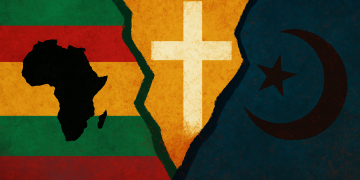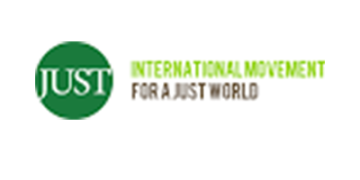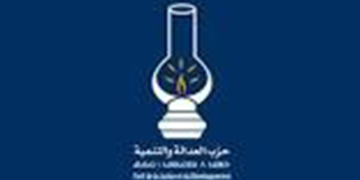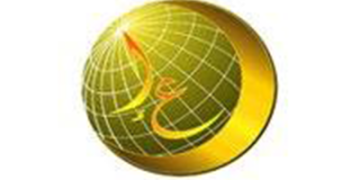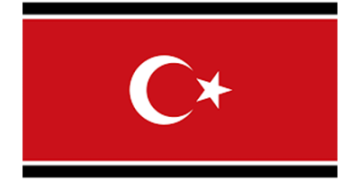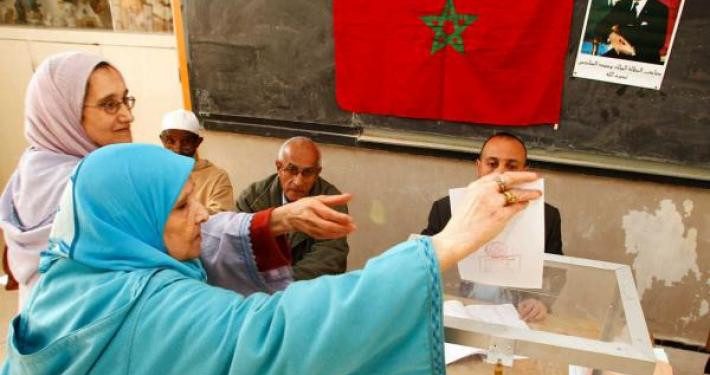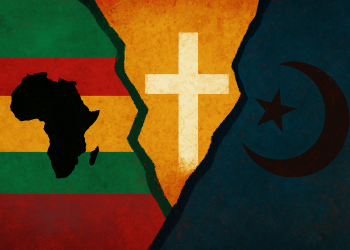Same as in other parts of the world, political participation has long been a challenge to be met by various parties involved in the political process in Morocco. And while the focus for encouraging civic engagement and political participation in democratic societies stem from an ongoing effort to safeguard and strengthen democratic practices. The stakes in Morocco might be said to be somewhat higher. In the North African kingdom, political participation is seen as a reflection of the legitimacy of the political system and the regime as a whole. And while elections serve as a direct and obvious –if not only – indicator for political participation; the parameters of the political system in the country put limits on the extent of the effectiveness of elections as a mean for social and political change, which subsequently opened the door for other forms of political participation and civic engagement. The aim of this article is to explain the particularities of the Moroccan case and to provide an overview of various methods used for civic engagement and political participation in the country and the central role that social media started taking in this regard since 2011.
Royal Authority vs Democracy
As already stated, the question and interest around political participation is not peculiar to Morocco, it is aligned with worldwide concern with this issue. Being an important component of all political systems, we find that political participation is a constant concern in participatory democracies. But it is important to understand as Halder and Philips explain that political participation plays an even more important role of reinforcing the legitimacy of the political authority by fostering stability and order (2020). Having citizens involved in different levels and aspects of the political process is the core of participatory democracy. The stakes are even higher in the case of semi-democratic systems, hybrid regimes or even authoritarian ones. This explains why many non-democratic leaders around the world are adamant about having extremely high numbers of people voting for them, they would rarely “win the elections” by less than 90% of the votes, while elections are usually won in democratic countries by much smaller margins. Claiming the existence of active political participation in non-democratic countries –even if it is not the case – provides the veneer of democratic practices needed to reinforce the legitimacy of political authorities and systems in those countries.
In the case of Morocco, being a semi-constitutional monarchy the king both reigns and rules. Having his role and responsibilities defined within the constitutional framework of the country, he rules over all three branches of the government and more. He is the head of the ministerial council which consists of the ministers and the head of the government. The king is also the head of the supreme council of the judicial authority. He presides over the opening session of the parliament during every legislative year and he has the authority to dissolve the parliament. Even more than that, the Moroccan constitution grants the king religious authorities as Ameer al-Moumeneen (the commander of the faithful) and head of the supreme religious council and he is the head of both the higher Security Council and the head of the armed forces.
Being in a prolonged transition phase to democracy (Levitsky and Way, 2002) is what most politicians, political scientists and intellectuals in Morocco provide as an answer to recurring questions surrounding political practices and the political process as a whole in the country. But it is most relevant to emphasize that within the constraining parameters of the Moroccan political system, the existence of institutions and practices of procedural democracy in the North African kingdom leaves more to be desired by Moroccans who aspire for reform and political change in their country. After six decades of establishing the electoral process in Morocco, the kingdom is nowhere near claiming democratic legitimacy.
Political Participation of Moroccans: To What Extent?
While the details and particularities of the Moroccan electoral system is not the main question of this article per say and the country’s regime type is beyond its scope, it is important to highlight specific aspects of the political system in the kingdom to understand how the political cap setting that could never exceed the boundaries of the monarchy combined with the declining credibility of the electoral process impact political participation in the kingdom both quantitatively and qualitatively.
It is true that since 1963 (seven years after the independence) elections have been regularly conducted in Morocco, but they are far from being free and fair. Not even considering the key condition of not being subjected to authorities’ meddling, elections in Morocco still fail to truly meet the eight basic standards of free and fair elections put forward by the European watchdog “liberties” (The Civil Liberties Union for Europe). From voters’ registration to access to reliable information and intimidation and fraud free elections, as well as accurately counting the ballots and respecting the results, the Makhzen (regime/ authorities) still has the upper hand and keeps a strong grip over the electoral process in the kingdom. Besides creating what is known in Morocco as “administrative parties” for the purpose of the balkanization and fragmentation of the political scene, the Makhzen regularly uses election laws and electoral redistricting in every election cycle to control the political scene by favoring specific candidates and parties at the expense of curtailing the chances of others. For a long time the king had the last say in assigning the head of the government regardless of the results of the elections, but after 2011 and the adoption of the new constitutional document the makhzen had to adapt; in the last legislative elections of 2021, canceling the electoral threshold and changing the electoral denominator for assigning parliamentary seats from casted votes to registered voters were some of the methods Moroccan authorities had to resort to, to tighten its grip.
When examining the data gathered by the International Institute for Democracy and Electoral Assistance, it is important to note that voter turnout in the country has been steadily declining since the 1970s. The lowest rate by far was registered in 2007 where claims of fraud and electoral meddling by the makhzen were reported by many national and international election monitoring groups. More than low voter turnout which better showcases the relationship between political participation and the political system of the kingdom is voting age population turnout; the VAP turnout in Morocco has never reached the 40% threshold since King Mohammed VI ascended the throne in 1999.
Even more striking are both the VAP turnout and voter turnout registered in 2011. At a time in which the tides of the Arab Spring brought about political change to the forefront of the populace concern and political participation was at its peak across the Middle East, it is indeed very telling that voter turnout for the parliamentary elections held in the country on 25 November 2011 failed to even reach 50%, with only 45.40% and an even lower VAP turnout of 28.65%. Comparatively, the data provide by IDEA shows that voter turnout for parliamentary elections held during the same period in Egypt was at 62% and reached 92% in neighboring Tunisia. One of the more obvious explanations to understand the striking difference between Morocco and its North African neighbors is the regime type and political system of the kingdom. While Tunisians and Egyptians took to the streets with the intention of toppling their regimes, Moroccans were only calling for reforms and the monarchy was not in the direct crossfire of public wrath.
Moroccans –as is clearly shown by the data – are not highly concerned with elections as a primary and direct form of political participation. By understanding the realities and limitations of the political system in their country, they realize that it is very hard, if not impossible to enact true political change. This obviously negatively impacts political efficacy in the kingdom. Political behaviour studies have long shown the connection between political efficacy on the one hand and political participation on the other (Abramson and Aldrich, 1982). But it is nonetheless important to differentiate between civic engagement as a whole and elections and low voter turnout as only one aspect of political participation, confusing the two will lead to inaccurate synthesis of the issue in the North African country.
Electoral Abstention as a Form of Protest
By criticizing Cassel and Hill’s inclusion of “voting is the only way” as an item in their measure of political efficacy, Abramson and Aldrich are very careful in not broadening the scope of the impact of political efficacy to exceed turnout to the broader notion of political participation. Consequently, based on the empirical data presented above, it is accurate to deduce that low political efficacy leads to low electoral participation in Morocco, but concluding that the decline of political efficacy has the same clear-cut impact on political participation in general would be misleading. While it is easier to explain low voter turnout by political apathy of the electorate, surveys conducted (as few as they are) to study political behaviours and trends in Morocco reveal that people are not casting their votes in various elections to take a stand and make a political statement, not because they are indifferent towards the political process.
Limitations of the political system in the North African kingdom as well as the low elections credibility, combined with a low trust rate in public and elected institution in the country prompted Moroccans to engage in other forms of political and civic participation. Demonstrations and strikes are some of the measures that people in Morocco use to have their demands heard. With a long history of unionization, Moroccans have long been accustomed to taking to the streets to claim class and political demands, even before 2011. Nevertheless it is important to emphasize the significance of the Arab Spring in terms of incorporating new methods of political participation.
The Arab spring which manifested in Morocco through the 20th February movement was a crucial turning point for adopting unconventional forms of political participation and civic engagement. Social media provided a new tool for the people to network, organize and actively participate. Instead of being deterred of engaging in any given issue because of the amount of material and logistical tools needed to organize for a political event. Moroccans and especially young people started using social media and new technologies in very effective ways to organize not only a demonstration or sit in, but a series of political events across the country in a matter of days. Even virtual demonstrations and digital campaigns which were first introduced to the public sphere during the Arab Spring era and were looked down on by traditional activists as a ridiculous millennial invention proved to be more effective in certain cases than the classical forms of political engagement. In 2018 Moroccan youth were able to spearhead a nationwide boycott campaign of major corporate brands in the country. By effectively using social media they successfully mobilized a big sector of the Moroccan public to boycott these brands who were considered by the public to be increasing the prices of goods and monopolizing the market, but maybe even more importantly being a representation of the illegitimate relationship between economic and political interests in the kingdom.
References
Halder, D. P., & Campbell-Philips, S. (2020). A review on political participation. Asian Journal of Education and Social Studies, 7(2), 1-15.
Levitsky, S., & Way, L. (2002). The rise of competitive authoritarianism. Journal of Democracy, 13(2), 51-65.
Civil Liberties Union for Europe. (n.d.). Standards of Free and Fair Elections. Retrieved from https://www.liberties.eu/en/stories/free-and-fair-elections/43642
International Institute for Democracy and Electoral Assistance (IDEA). (n.d.). Voter Turnout Database for Morocco, Egypt, and Tunisia. Retrieved from https://www.idea.int/data-tools/data/voter-turnout
Abramson, P. R., & Aldrich, J. H. (1982). The decline of electoral participation in America. The American Political Science Review, 76(3), 502-521.
Moroccan Institute for Policy Analysis. (2020). Trust in institutions index.













